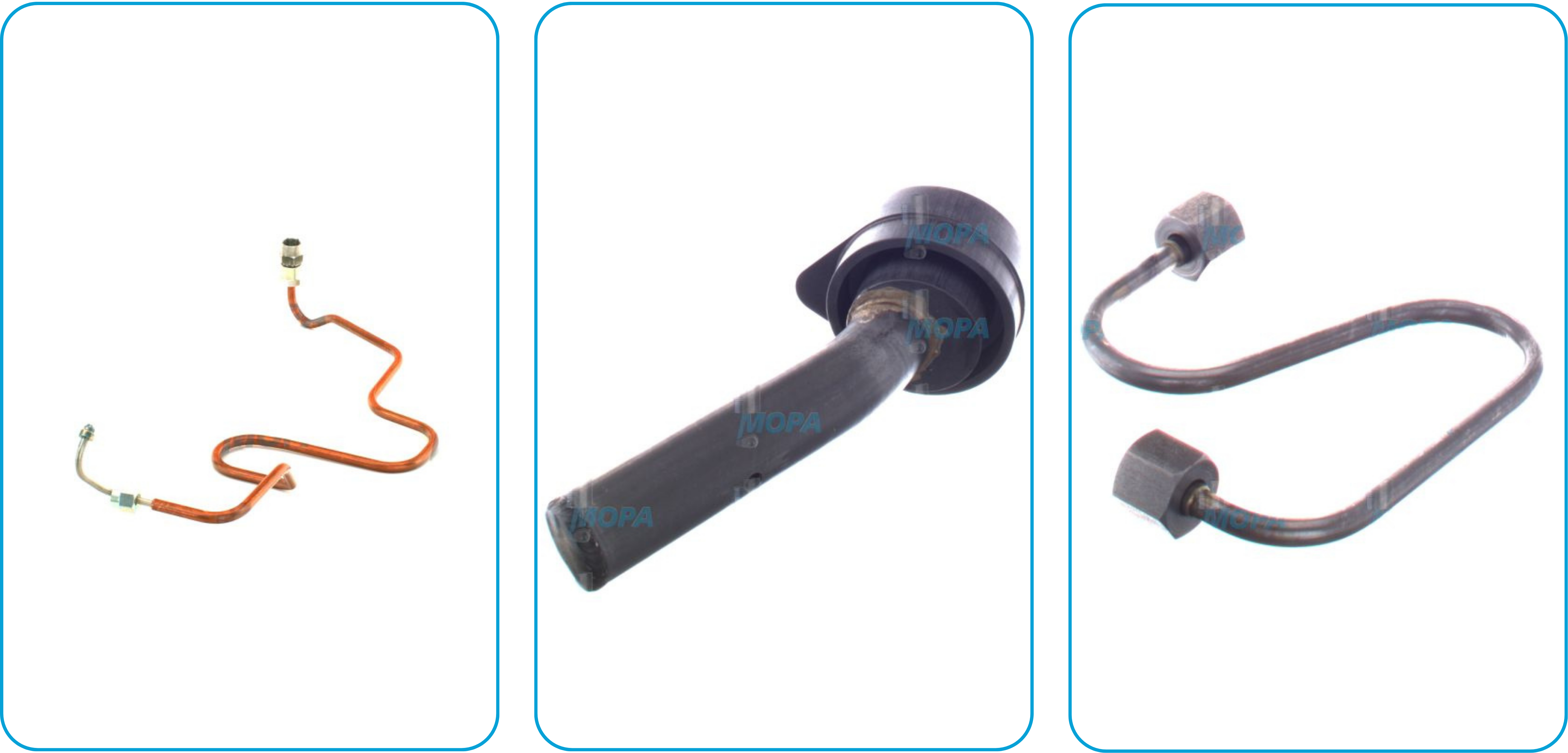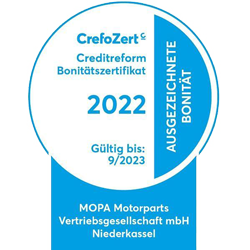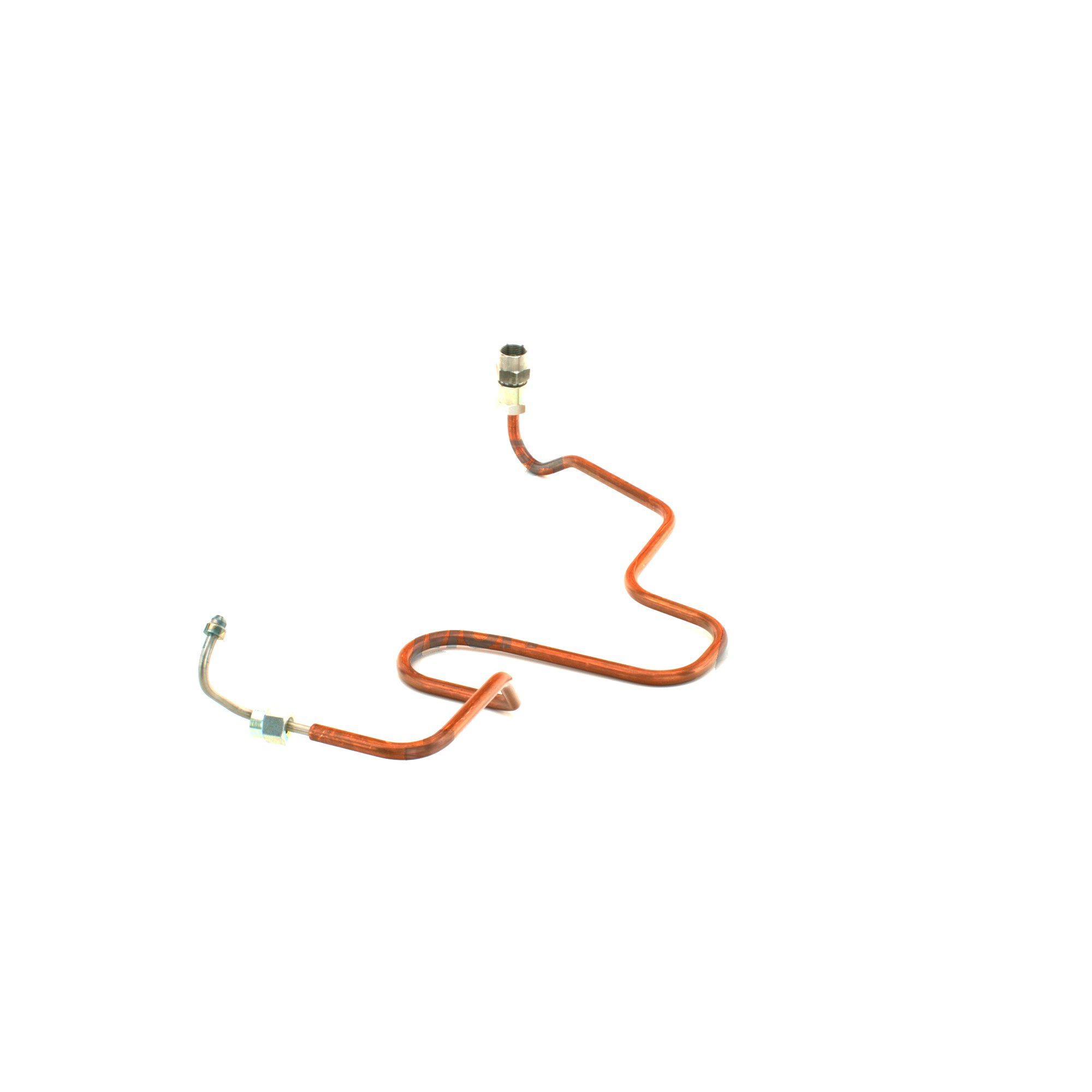Marine lines and pipes– reliable for engines
Marine lines are essential components in engine and auxiliary systems onboard ships and offshore installations. They guide fluids such as fuel, coolant, oil or exhaust gases safely through the system and ensure consistent operation under demanding marine conditions. Whether for main propulsion, auxiliary systems or generator units – high-quality marine lines support performance, safety and compliance.
Function and benefits
Marine lines connect key components such as pumps, filters, heat exchangers and tanks. They transport fluids under pressure or vacuum, depending on the system's function. Well-designed engine lines and motor pipes provide:
- Secure fluid transport with minimal pressure loss
- High resistance to vibration, temperature and corrosion
- Reliable performance in continuous operation
Whether it's marine pipes in the engine room or mechanical pipes in auxiliary systems, every connection must meet strict safety and durability standards.
Types and materials
Marine lines and engine pipes are available in various types and materials. Common variants include rigid steel lines, flexible hoses, double-walled pipes for fuel systems, and high-temperature resistant exhaust lines. Motor lines can be configured to carry fluids like oil, coolant, compressed air or fuel depending on the system.
Mechanical lines are often used in hydraulic or pneumatic subsystems and must be able to withstand pulsing pressure. All pipes and fittings must be resistant to seawater, vibration and thermal cycling – especially in marine pipes and offshore applications.
Installation and maintenance
Installing mechanical pipes requires precise routing, strong mounting brackets, and high-quality seals or flanges. Leaks or misalignment can lead to reduced performance or even system failure. During regular inspections, all marine lines and motor pipes should be checked for corrosion, cracks and secure connections.
We supply a broad range of marine lines, engine pipes and system-specific fittings compatible with MTU, Deutz, MAN, Volvo Penta and MWM engines – with fast availability and OEM-level precision for maritime and industrial use.

FAQ
What are marine lines?
Marine lines are pipes and hoses used in ships to transport fluids such as oil, coolant, fuel or exhaust gases. They are designed to withstand harsh marine environments and are essential for engine operation and onboard systems.
What is the difference between engine pipes and mechanical lines?
Engine pipes are typically used in fuel, exhaust and cooling systems of the engine itself. Mechanical lines may include hydraulic or pneumatic pipes used in steering, winch systems or auxiliary machinery. Both must meet high safety and performance standards.
When should marine pipes be replaced?
Marine pipes should be replaced if there are signs of corrosion, wear, vibration damage or leakage. Regular inspections and timely replacement are crucial for preventing failures, especially in high-pressure or high-temperature systems.




